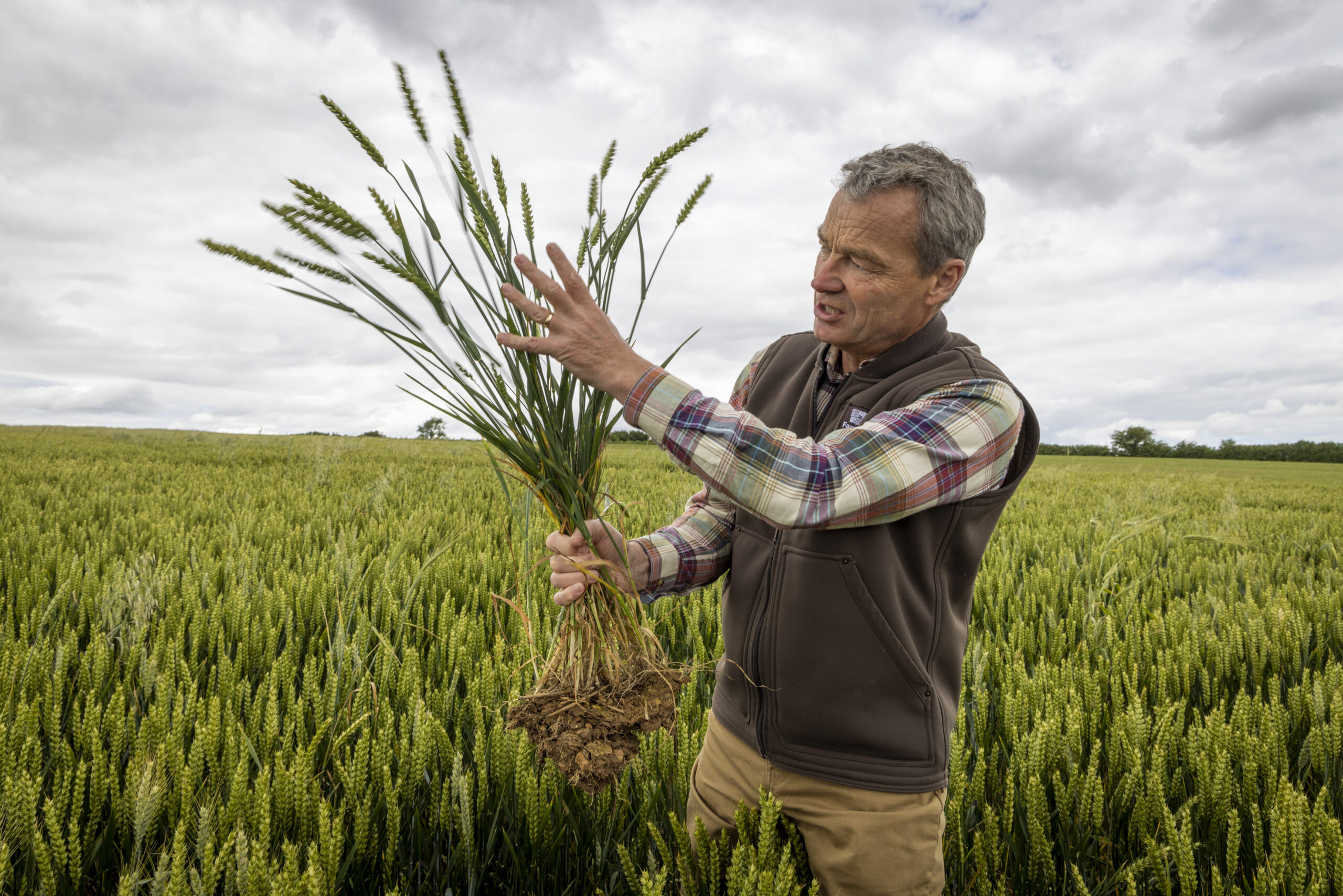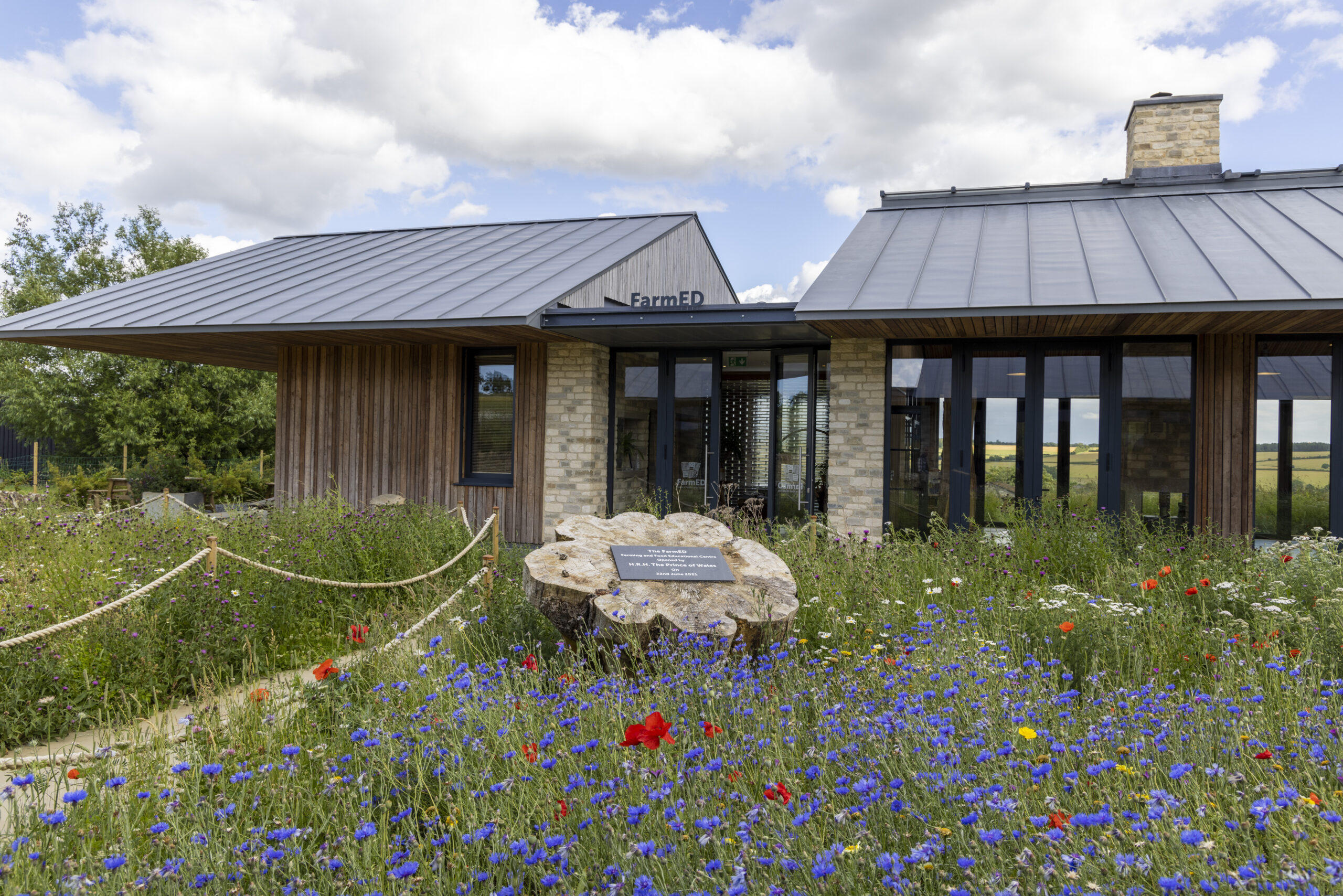
Ian Wilkinson, FarmED Founder, says: “We need to talk about farming and the importance of producing quantities of food from the land without destroying the natural world in the process. As advocates of regenerative farming and environmental recovery we believe that reform of the farming system can provide a more prosperous and climate resilient future.
“Regenerative agriculture and agro-ecology has the power to transform conventional farming practices to revitalise the land and increase biodiversity. We aim to sow the seeds of change and cultivate a hopeful future for generations to come.
The farm grows a range of crops including modern cereals and ancient wheats, with grassland managed by mob-grazed sheep and cows. It also features a heritage orchard with 250 species of fruit trees, wildflower margins, an apiary and a natural flood management scheme. It is part of the NE Cotswold Farming Cluster, a collaboration of over 130 farmers working on more than 100,000 acres of land.

A low impact approach
FarmED’s system also incorporates a low input approach by not using artificial fertiliser or sprays, and keeping tilling to a minimum. The price of fertiliser, most farm’s single biggest variable cost, rose by 400% in 2022. Bird surveys conducted at FarmED have shown that the diversity of species has risen significantly over recent years, from 44 different species recorded in 2014 to a total of 84 by 2020.
Founders, Ian and Celene Wilkinson, bought Honeydale Farm ten years ago and cite the growing public interest in food provenance, support for climate action from young people, including young farmers, and farmers’ experience of extreme weather such as flooding, as factors driving change.
Hallam Duckworth manages a micro dairy based at the farm, with cows producing milk, some of which is sold through a subscription service.
He said: “When I was at college, people weren’t talking about regenerative farming. My lecturers focussed on traditional farming methods but there are other options that are just as productive. But now that the subsidy system is changing, it’s a more appealing prospect.”
Following Brexit, the government is introducing a suite of policies that will change the way farmers receive subsidies. These will offer payments for protecting land and biodiversity above minimum legal requirements, through a Sustainable Farming Incentive. Actions set to be rewarded include supporting wildlife, floodwater management, soil improvement and tree planting to soak up carbon emissions.
Over 70% of British land is used for agriculture which is responsible for 12% of territorial greenhouse gas emissions. Food production has had a devastating effect on Britain’s biodiversity. Farmland birds have more than halved since 1970 while 15% of British wildlife species are now facing extinction.
A recent report by WWF-UK, found that regenerative farming practices, such as ditching artificial fertiliser or boosting hedgerows, could create carbon savings equivalent to taking 900,000 cars off the road.
The movement is growing with large brands, including Nestle, PepsiCo, McDonalds and Waitrose all announcing support for regenerative farming initiatives.
